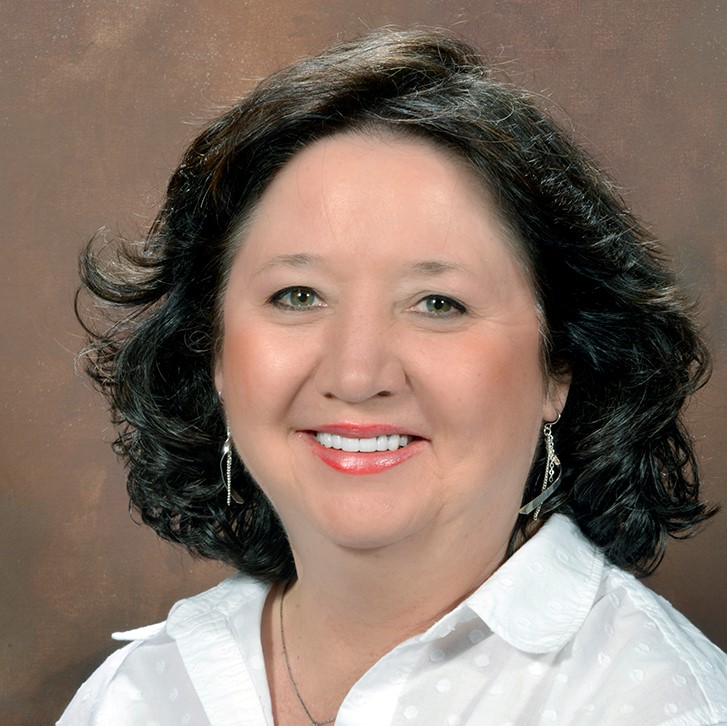The Center for Nursing Research (CNR) advances the College of Nursing research and scholarship mission by facilitating faculty and student efforts to obtain external funding to support research, educational, and service demonstration projects. The CNR team coordinates student and faculty access to a wide range of support services within the College of Nursing and Augusta University.
In supporting the strategic plans of Augusta University and the CON to achieve the goal of becoming a “R1 University,” the CNR aims to advance research and other types of scholarship by facilitating the research efforts and success of faculty and students to:
The CNR team provides meaningful services to support CON faculty and students in reaching the following goals:
RESEARCH AND GRANTS
SCHOLARSHIP AND DISSEMINATION
ResearchersFaculty & StaffSeminars & WorkshopsCommunity Involvement
Distinguished by Excellence

Interim Chair, Department of Prelicensure Programs
Assistant Professor, College of Nursing
The Graduate School
Keywords: health disparities, intimate partner violence (IPV), African Caribbean women and girls, IPV & HIV risk reduction interventions, IPV and contraceptive use
Bio: Dr. Desiree Bertrand's research focuses on reducing health disparities in African Caribbean women and girls, specifically the U.S. Virgin Islands and Haiti.
She has worked on multiple National Institute on Minority Health and Health Disparities (NIHMD) funded studies, which were conducted under The Caribbean Exploratory Research Center, University of the Virgin Islands, School of Nursing.
Most recently, Dr. Bertrand has conducted research on an integrated risk reduction intervention for abused African Caribbean women and a study on contraceptive use among African Caribbean and African American women with a history of intimate partner violence.
Dr. Bertrand's future research goal is to establish a culturally tailored evidence-based educational resource on contraceptive methods for African Caribbean women experiencing IPV.

Professor, College of Nursing
The Graduate School
Keywords: cancer, infection, vascular access, Clinical ABCDE interdisciplinary pedagogy, Healthcare and Technology Synergy (HATS) model for clinical research, and lung cancer respiratory symptoms
Bio: Dr. Cynthia Chernecky's areas of research focus on physiological and psychological factors associated with lung cancer, outcomes and education associated with venous access devices in cancer patients and caregivers, and best educational formats for student learning through book publication. In lung cancer, her research focuses on respiratory factors as part of the symptom experience with specific emphasis on coughing, wheezing, dyspnea and allergies or hypersensitivities.
Dr. Chernecky is part of a national multi-site nursing research team, supported by internal and external funding; that is investigating the experience of patients who have non-small cell lung cancer. The long-range goal of her collaboration is to develop effective strategies to promote quality of life and effectively control respiratory symptoms. Her area of research associated with venous access devices has been supported by NIH, NINR funding and includes health care disparities research in cancer patients and caregivers.
Her nursing research on educational formats includes the development of a clinical format for ease of use regarding information on laboratory tests and diagnostic procedures. A new pedagogy to enhance clinical care plans called the ABCDE pedagogy, and a new model for nursing research called Healthcare And Technology Synergy (HATS) model, which was co-invented by Dr. Chernecky. These areas of research are complemented by her clinical expertise and as the founder of critical care oncology.
Dr. Chernecky has published 30 textbooks, 4 winning prestigious awards, and has influenced with her writings about 1:8 registered nurses in North America and thousands internationally.

Professor, College of Nursing
The Graduate School
Keywords: USA Hispanic farmworker cardiometabolic risks, interprofessional outreach, community training partnerships, African American chronic bacterial vaginitis, substance abuse, and curriculum integration
Bio: Dr. Pam Cromer’s research interests include cardiometabolic risks of Hispanic farmworkers and outcomes of substance abuse training on advanced practice nursing students. With over twenty years as an APRN healthcare provider, interprofessional training is an area Dr. Cromer emphasizes in her faculty practice and work. Dr. Cromer is Project Director for the College of Nursing’s Costa Layman Health Fair & Community Outreach Programs. She is a Co-investigator of the “Cardio-metabolic Risks of Hispanic Farmworkers in Southeastern USA” (CHARM) Study, funded by the Georgia Institute of Public and Preventive Health. This ongoing longitudinal study is the first to study health behaviors and regional/local influences among the local Hispanic farm-workers and evaluate the potential for development of guidelines for individualized interventional strategies. Her collaborations and presentations include regional, national and international presentations and publications. Recognized for her outstanding work with the Costa layman Community Outreach Project(s), she received the prestigious 2016 AANP Nurse Practitioner State Award for Georgia.
Dr. Cromer is a sub-investigator on the Augusta University Interprofessional Substance Abuse Training for the Health Professions (SRISAT), a federally funded training grant to improve substance abuse screenings and interventions in primary care settings. In addition, she was a co-investigator for an African American Chronic Recurrent Bacterial Vaginosis study at the University of South Carolina.
Her future research interests include clinical applications of proactive participation in Hispanic outreach services and the effects of substance abuse and brief intervention training for APRN students.
Keywords: rural health disparities, diabetes, community-based participatory research, workplace based interventions
Bio: Dr. Lynn Engelberg Glenn’s preliminary research has focused on rural, low-income working adults with diabetes and the socioecological factors related to being engaged in diabetes preventive health services. She plans on using a community-based approach to further explore the engagement in health care among younger adult and rural populations at high risk for diabetes.
She has worked as a nurse practitioner serving rural, underserved and uninsured adults with chronic disease. She has mentored several advanced practice nursing students and has advocated for a stronger healthcare workforce in rural areas.
She is also a provider for the Best Chance Network, a CDC funded breast and cervical screening program for low income and uninsured women in South Carolina. Dr. Glenn plans to advocate for equitable access to health care among underserved populations as her primary professional service objective.
Currently, she serves on a community health coalition that serves to increase access to healthy food in rural South Carolina and also serves on the board for the Family Counseling Center – CSRA that provides access to mental health services for the uninsured.

Assistant Professor, College of Nursing
Assistant Dean, Instruction and Innovation
Keywords: adult learning, educational research, group dynamics, instructional core, instructional rounds, meditation, metacognition, reflective practice, telehealth
Bio: Dr. Bill Hamilton's research is focused on improving health sciences pedagogy by conducting novel inquiry in the science of teaching and learning. His past research has included studying the use of telehealth in improving stroke outcomes in rural areas, using instructional rounds to improve teacher metacognition, and applying group dynamic and team development theory to doctoral educational processes.
Currently, Dr. Hamilton is studying the correlation between nursing student self-efficacy, meditation practices, and learning outcomes; the efficacy of using an asynchronous training module to prepare graduate nursing students for the use of telehealth in nursing practice; and assessing cultural competency in a nursing training program.
His future research interests and directions include novel and interdisciplinary approaches to health sciences simulation, the use of instructional rounds in post-graduate nursing programs, and building inclusive nursing pre-licensure learning communities through pedagogical innovations. The theoretical framework for his research is based on novel pedagogical practices that pertain to the instructional core, transfer of metacognition from the teacher to the learner, adult learning principles, and reflective practice.

Associate Professor, College of Nursing
The Graduate School
Keywords: stress, nutrition, lifestyle, methylation, reactive oxygen species, inflammatory mediators, ET-1, and NOS3
Bio: Dr. Robin Johns's current research focuses on epigenetics and the development of cardiovascular disease. Using big data analytics, she is presently studying the relationship between NOS3 polymorphisms and CVD risk in populations worldwide. Her other research interests include mechanisms of acute stress and its influence on clinically relevant cardiovascular diseases; including the mechanistic pathways by which acute behavioral stress-induced increases in the vascular peptide endothelin (ET-1) result in the release of reactive oxygen species and lead to enhanced pressor response and an increase in pro-inflammatory mediators.
In addition to her basic science background, Dr. Johns is an experienced clinical researcher whose work also includes interventional studies designed to decrease the effect of acute stress on physiological markers in patients hospitalized with acute cardiac events.
Her future research goals include translating her current epigenetic findings to human populations through interventional studies using nutritional strategies designed to modulate methylation-associated inflammatory pathways to decrease cardiovascular risk.
In addition to her basic science research, Dr. Johns is an experienced clinical researcher whose next goal is to translate her findings to the patient care setting.
Keywords: epidemiology, infectious disease, community health, and behavioral interventions
Bio: Dr. Thomas Joshua has a PhD in Epidemiology from the University of Georgia and serves as CNR Epidemiologist and Data Manager for a multitude of NIH-funded and other healthcare studies. He has provided statistical and data management support for approximately 300 DNP students and a number of PhD students.
Dr. Joshua's doctoral work focused on the incidence, risk factors and diagnostic test performance for tuberculosis (TB) among immigrants in Georgia.
Currently, he is conducting studies on hospital admitted COVID-19 patients, to include assessing risk factors, length of stay and mortality.
Dr. Joshua's immediate future plans include other studies on COVID-19 in underserved and vulnerable populations. His future research goals include studying the TB incidence of immigrant populations and health policy development.

Assistant Professor, College of Nursing
Keywords: aromatherapy, complementary modalities (CAM), pain and symptom management, holistic nursing, hospice and palliative care, pediatrics, health disparities, photovoice, visual methodologies, and community-base participatory research
Bio: Dr. Dawn Langley-Brady's research focuses on the use of complementary therapies, such as essential oils or aromatherapy, for pain and symptom management across the lifespan, in vulnerable populations, and at end-of-life.
Dr. Langley-Brady has studied essential oil blend's substance P inhibition during local thermal hyperemia in healthy adults and has conducted a mixed methods study on an essential oil intervention for chemotherapy-induced peripheral neuropathy in breast cancer survivors.
Dr. Langley-Brady's future research interests include multimodal and complementary modalities pain research, natural, non-opioid pain interventions, ascertaining genetic differences between pain treatment responders and non-responders, associations between health disparities and chronic pain, essential oil-related changes in substance P and nitric oxide using local thermal hyperemia, and the reduction of terminal respiratory secretions.

Assistant Professor, College of Nursing
The Graduate School
Keywords: neonatology, hematology, ischemic disease
Bio: Dr. Terri Marin’s primary program of research focuses on developing diagnostic strategies to identify risk factors for ischemic disease in premature infants using near infrared spectroscopy technology.
In collaboration with a multidisciplinary research team, Dr. Marin’s work has led to practice change in neonatology associated with packed red blood cell administration to very low birthweight infants. Her exploratory research has identified elements related to mesenteric hypoperfusion during blood transfusions that potentially increase the risk for necrotizing enterocolitis development, a disease associated with significant mortality of prematurity.
Dr. Marin is a Fellow of the American Academy of Nurses and a Fellow of the American Association of Nurse Practitioners for her internationally recognized research in this area.
Dr. Marin’s current research is focused on identification of physiologic biomarkers to identify or predict subclinical acute kidney injury in very low birth weight infants. Utilizing near-infrared spectroscopy technology, Dr. Marin aims to increase understanding of physiologic mechanisms that lead to tissue ischemia and to develop intervention strategies to improve prediction and prevention of associated diseases.
Dr. Marin’s future research trajectory is focused on further exploration of risk factors associated with the development of mesenteric, cerebral, and renal ischemia in preterm infants.

Coordinator, Psychiatric Mental Health Nurse Practitioner Program
Associate Professor, College of Nursing
The Graduate School
Keywords: proactive readiness, content analysis, and substance abuse
Bio: Dr. McKinnon’s research interests come from a combination of practice experience as a child & adolescent psych-mental health nurse and expertise in mental health nursing education across prelicensure and graduate nursing courses.
Following a doctoral dissertation on parental participation in child mental health services, Dr. McKinnon has studied outcomes of substance abuse training in advanced practice nursing students, weight management outcomes for veterans with mental health conditions, and prevalence of adverse childhood experiences among undergraduate nursing students. She has numerous interdisciplinary connections across Augusta University and within the academic psychiatric-mental health nursing field. She has been a sub-investigator on multiple HRSA grants, and she is certified as an instructor on suicide prevention training.
Her research interests include theoretical and clinical applications of proactive participation in child mental health services.

Dean
Chair, Department of Nursing Science
Professor, College of Nursing
The Graduate School
Keywords: trauma, sepsis, immunology, translational research, inflammatory function, and inflammaging
Bio: Dr. Beth NeSmith's research program focuses on clinical and translational work which aims to uncover and eliminate health disparities in acute outcomes of life-threatening injury. This work was inspired by Dr. NeSmith's clinical experience with vulnerable populations in emergency, trauma, and critical care settings.
Among Dr. NeSmith's publications is research that shows only 2% of injury investigations have focused on this important issue. Dr. NeSmith's work is based on the theoretical relationships proposed in the Psychoneuroimmunology and Vulnerable Populations Conceptual Frameworks, as well as pathways connecting chronic stress to changes in the function of the immune system which mimic accelerated biologic aging.
Dr. NeSmith's work has been funded by the National Institute for Drug Abuse and National Institute for Nursing Research. Utilizing translational research models in collaboration with a multidisciplinary research team, she focused on the effects of lifetime chronic stress on inflammatory function, and how these effects impact vulnerability to sepsis and multiple organ failure through differences in the function of the inflammatory response.
Her research trajectory includes investigations that will add to increasing evidence supporting her theory that chronic stress creates sub-clinical physiologic changes which, when impacted by multiple life-threatening injuries, predispose clients to differences in vulnerability and response to treatment for sepsis and multiple organ failure.
Her research objectives are to contribute to the development of advances in tailoring individual treatments to prevent illness and poor outcomes related to inflammatory processes.

Coordinator, Family Nurse Practitioner Program
Associate Professor, College of Nursing
Department of Family Medicine
The Graduate School
Keywords: maternal outcomes, group prenatal education, lifestyle medicine, international service-learning
Bio: Dr. Colleen Walters previous research focus was on international service-learning and student outcomes of critical reflection and transformative learning.
She utilized findings from her study on critical reflection of students in study abroad programs to develop high impact international study abroad experiences to Mexico, Haiti, and Cuba.
Dr. Walters has created an evidence-based group prenatal education and support program for pregnancy resource centers. She also is on the Department of Family Medicine research team, which focuses on improving health outcomes through lifestyle medicine.
She is a trained facilitator for the Comprehensive Health Improvement Program (CHIP) in which she facilitates group telehealth visits on lifestyle modification to manage obesity and chronic conditions.

Julie Zadinsky, PhD, RN
706-721-2469

Thomas V. Joshua, PhD
706-721-4093



The Center for Nursing Research (CNR) seminars and workshops focus on research works-in-progress, completed research, research-related topics, and engaged scholarship. Presenters include College of Nursing and other Augusta University faculty as well as guest speakers. CNR Workshops may be designed for a specific audience. However, CNR Seminars are open to all AU faculty, staff, and students as well as AUMC employees.
| Oct 25, 2024, 12:00-1:00 p.m. Coffee, Compliance & Conversations: Privacy & Confidentiality of Data |
Heather Wilson, BS, CIM, CIP |
Flyer Recording Handout |
| Sep 13, 2024, 12:00-1:00 p.m. Coffee, Compliance & Conversations: Informed Consent |
Heather Wilson, BS, CIM, CIP |
Flyer Recording Handout |
| Jun. 14, 2024, 12:00-1:00 p.m. Advancing Nursing Education: A Comprehensive Process for Adopting AACN 2021 Essentials and Transforming Curricula |
Miranda Hawks, PhD, RN, CNL |
Flyer Recording Four Spheres of Care Article Ottawa Model Presentation Slides Progression Indicator Guide |
| Jun. 7, 2024, 12:00-1:00 p.m. Coffee, Compliance & Conversations: Protocol Adherence |
Heather Wilson, BS, CIM, CIP |
Flyer Recording |
| May 31, 2024, 12:00-1:00 p.m. Mitigating Cervical Cancer Rates Among Disproportionately Affected Women of All Races |
Denotra Gaillard, DNP, FNP-BC Pamela Cromer, DNP, FNP-BC, FAANP |
|
| Apr. 19, 2024, 12:00-1:00 p.m. Current Evidence & Guidelines for Obesity & Prediabetes Management and Type 2 Diabetes Prevention in Younger Adults: Healthy Lifestyle Interventions vs. Medical Management |
Lynn Glenn, PhD, APRN-C |
Flyer Recording Presentation Handout |
| Mar. 29, 2024, 12:00-1:00 p.m. Tools to Find Funding - and Operational Updates from Sponsored Programs Administration |
Jason Guilbeault, MBA, CRA Associate Vice President for Sponsored Programs Administration |
Flyer Recording Sample Proposal Development Checklist Getting Started with SPIN Accessing GrantSelect Reviewing Solicitation Guidance Presentation Handout |
| Feb. 16, 2024, 12:00-1:00 p.m. Research Collaborations in the Social Sciences |
Dustin Avent-Holt, PhD Director, Center for Social Science Research Melissa Powell-Williams, PhD Director, Qualitative Research Lab |
Flyer Recording Presentation Handout |
| Dec. 8, 2023, 12:00-1:00 p.m. From Presentation to Publication: Writing Word by Word |
Bonnie Jennings, PhD, RN, FAAN |
Flyer Recording |
| Oct. 27, 2023, 12:00-1:00 p.m. Teaching Quality in the College of Nursing: Review of a Pedagogical Course Development Journey |
Bill Hamilton, EdD, MBA Associate Professor Assistant Dean of Instruction and Innovation Zackery Howington, PhD Instructional Designer |
Flyer Recording Presentation Handout |
| Oct. 20, 2023, 12:00-1:00 p.m. Strategies for Improving Graduate Writing |
Candis Bond, PhD Director, Center for Writing Excellence James Garner, PhD Associate Director Center for Writing Excellence |
Flyer Recording Strategies for Improving Graduate Writing Handout APA Style Comments Handout |
| Jul. 28, 2023, 12:00-1:00 p.m. The Value of Explicit Writing Instruction |
Candis Bond, PhD Director, Center for Writing Excellence James Garner, PhD Associate Director Center for Writing Excellence |
Flyer Recording Slides Bloom's Taxonomy |
| Jun. 23, 2023, 12:00-1:00 p.m., Zoom Inquiry 1000: Success and Resilience in College and Life |
Lisa Prince-Clark DNP, MSN-Ed, CMSRN Assistant Professor, College of Nursing |
Flyer Recording |
| Apr. 21, 2023, 12:00-1:00 p.m. Pathways of High Quality and Productive Research in the Health Sciences |
Andrew Balas, MD, PhD Professor and Lead, Biomedical Research Innovation Laboratory Institute of Public and Preventive Health |
Flyer Presentation Recording |
| Mar. 14, 2023, 12:00-2:00 p.m. Rural Health & Nursing Education in Scotland, UK |
Debbie Wilson, MSc Lead Faculty, Robert Gordon University School of Nursing, Midwifery, and Paramedic Practice |
Flyer Presentation Recording |
| Feb. 24, 2023, 12:00-1:00 p.m. Geographical Disparities in the Management of Type 2 Diabetes |
Lynn Glenn, PhD, APRN-C Assistant Professor, College of Nursing |
Flyer Presentation Recording |
| Dec. 9, 2022, 12:00-1:00 p.m. Finding Funding Tools & Basic Proposal Development Concepts |
Jason Guilbeault, MBA, CRA Associate VP for Sponsored Program Administration and Executive Director for the AU Research Institute |
Flyer Presentation Recording |
| Nov. 11, 2022, 12:00-1:00 p.m. Blood Pressure Variations in Premature Infants During the First Two Weeks of Life |
Naomi Sosa Senior, Fort Lee High School Terri Marin, PhD, NNP-BC, FAANP, FAAN Assistant Professor, College of Nursing |
Recording |
| Oct. 28 , 2022, 12:00-1:00 p.m. The New AUHS Data Request Process |
Sherry Gauldin Senior Clinical Data Strategist, AUMC |
|
| Sep. 23, 2022, 12:00-1:00 p.m. CURS Activities & Funding Opportunities |
J. Quentin Davis, PhD Director, Center for Undergraduate Research and Scholarship (CURS) Director, Quality Enhancement Plan/ Certificate of Leadership Program |
Recording Presentation |
The College of Nursing established the Community Advisory Board (CAB) in 2003 with the mission “to promote mutual understanding and cooperation in working toward improved health for community members.” The board has a special focus on health disparities and advises university-wide researchers on matters of interest to the broader community. Community Advisory Board »